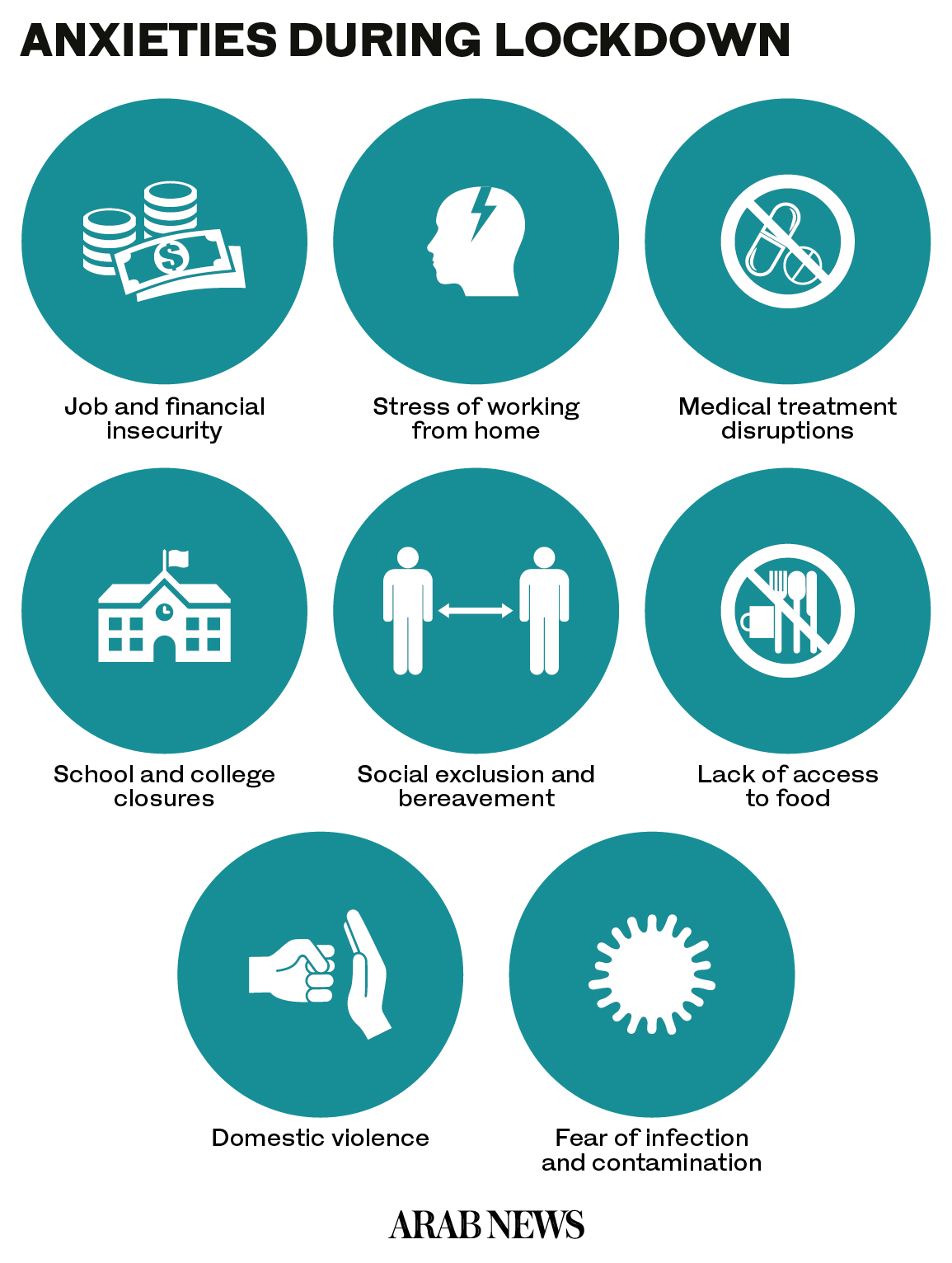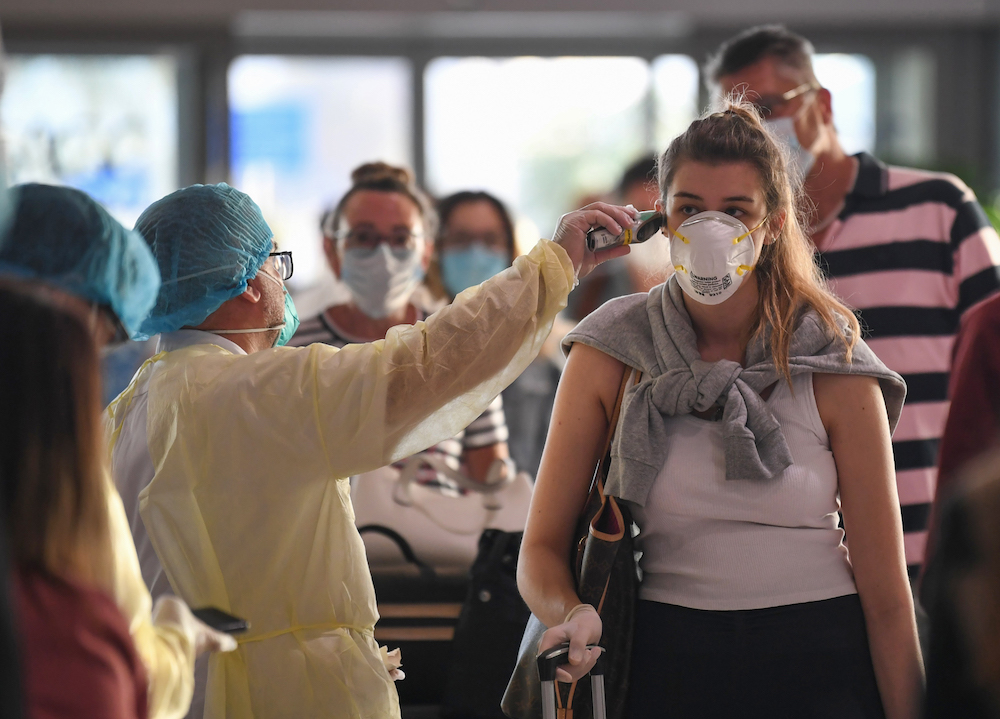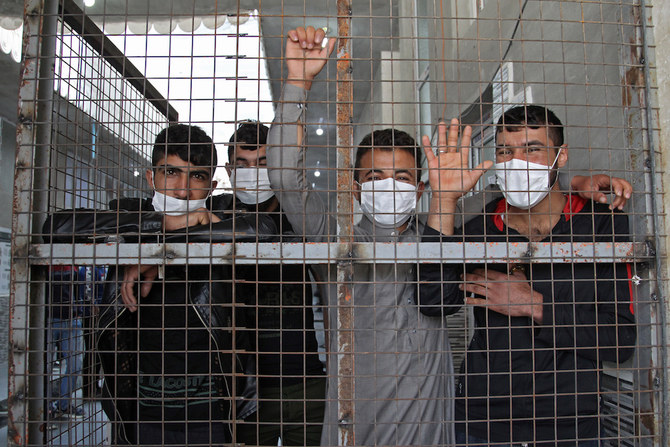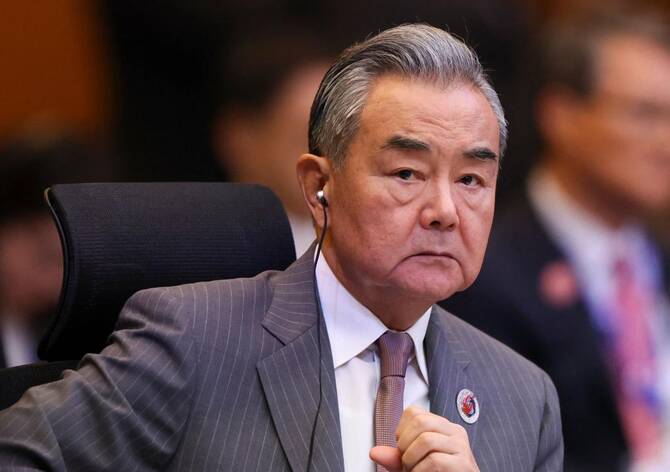DUBAI: Since the outbreak in China’s Wuhan city, the coronavirus (COVID-19) pandemic has exacted a heavy physical and psychological toll on front-line health workers in the Arab region and the wider world.
But this is also a distressing and dislocating time for the general population as large swathes of humanity endure months of strict lockdowns on public life.
Loneliness, social isolation, health issues and job insecurity are affecting adults, and those with underlying mental-health disorders are especially in need of support.

For many people, what is adding to the stress is the enforced transition from living independently to sharing space with a spouse or family members round the clock, taking care of children while working and, in extreme cases, being subjected to domestic violence.
“COVID-19 has dramatically highlighted to us all that we actually have very little control and that all the things we hold dear and important in life can simply change in the blink of an eye,” said Dr Tara Wyne, clinical psychologist and clinical director at LightHouse Arabia in Dubai.
“This makes people feel very groundless and powerless. People are worried about many things — peace of mind, normality, jobs, ability to connect with loved ones and certainty about the future.”
Mental illness, coupled with enforced social isolation, can deepen vulnerabilities, according to Wyne.

A health worker checks the body temperature of passengers bound for Frankfurt at Dubai International Airport on April 6, 2020. (AFP)
“Suddenly, we see people neglecting what they already know, turning night into day, overeating, moving less and less,” she told Arab News.
“People are indulging in self-treatment in response to all the changes and losses (through) different ways, such as smoking, drinking, binge-watching TV, constant news consumption and panic buying.
“This response demonstrates how much we value our daily routine and how lost we can feel with sudden change.”
Wyne said it could take some time before we realize how unhealthy our reactions are and how badly we need to develop a new routine, set daily goals and stick to them.
“For those living alone, loneliness can become an issue as there is nobody to simply reach out to for assurance, comfort or distraction when needed,” she said.

A health worker stands in front of a bus driving migrant workers who have been tested positive for the COVID-19 to the Warsan neighbourhood, where people infected or suspected of being infected by the virus are quarantined, in Dubai. (AFP)
“Enforced togetherness with children or a spouse with little scope for private space or down time can also be very challenging.”
According to Dr. Marta Ra, CEO of Paracelsus Recovery, a leading Zurich-based clinic in mental health, the pandemic has placed humanity in a global emergency with long-term consequences.
This has left many feeling powerless, vulnerable, afraid and angry.
“These emotions elevate our stress levels,” she said. “If you are self-isolating alone, stress will heighten the impact of loneliness and could exacerbate underlying issues. If you are self-isolating with loved ones, it could express itself in increased conflict.”
To navigate these issues, people have to recreate their perspectives, show compassion, and create routines, Ra said.
When stress levels create conflict, people in such circumstances should adopt a “code word” to signal the need for time to unwind.
“If you are alone, make reaching out to friends and family part of your daily routine,” she said.

A Palestinian police officer loyal to Hamas and wearing a protective mask due to the COVID-19 coronavirus pandemic, reads from the holy Koran during the Muslim holy month of Ramadan, on April 27, 2020 outside a school used as a quarantine facility in Deir al-Balah in the central Gaza Strip. (AFP)
Our physical health also has a significant impact on our emotional wellbeing. Exercise, healthy eating and adequate sleep are all helpful tools to combat stress and stay mentally fit.”
Although experts believe the pandemic period will have a negative impact on people’s psychological wellbeing, they say such consequences cannot be completely warded off.
Rather, people should try to manage and cope better by being kind and compassionate towards themselves when they fall short of their expectations.
“Develop a routine that works for you, including healthy sleeping and eating habits, as both affect your mood,” said Resha Erheim, a Dubai-based mental health counselor and member of the Canadian Counselor and Psychotherapy Association.

Syrians who returned from Turkey stand at a quarantine facility in the countryside of the town of Jisr al-Shughur, west of the mostly rebel-held Syrian province of Idlib, on April 27, 2020. (AFP)
“Self-care must become part of your daily routine; physical exercise, practicing a hobby or doing something that gives you a sense of achievement and pleasure will help you cope better.
“Spiritual practices such as meditation, prayer and contemplation will help build your resilience and lower your anxiety about the future and what you can’t control.”
Studies have also shown that practicing greater life appreciation and gratitude leads to increased happiness.
What kind of advice would Erheim offer in these circumstances
“Try to keep a positive mindset and look at the personal and universal silver linings from this crisis,” she said.

Shoppers stand in line apart from each other at a supermarket amidst calls for social distancing and a high demand for groceries on April 15, 2020 in the Cobble Hill neighborhood of the Brooklyn borough in New York City. (AFP)
“Share your skills, offer your services, engage in helping others and other kind acts, all of which can help you feel happier and more content with your life.
“I certainly believe as we flatten the COVID-19 curve, we will see a rise of mental-health issues and violence, not just during the pandemic but also in the post-pandemic period.”
Erheim says the trend of a collective experience of grief and trauma giving rise to psychological concerns has already been confirmed by multiple sources.
“I imagine we will see a universal increase in mental-health conditions being diagnosed, more people requiring and seeking treatment and more domestic-violence survivors needing support,” she said.

A man holds up a sign that reads 'THANK YOU! We Love You!' for healthcare workers at New York- Presbyterian Hospital during the coronavirus pandemic on April 24, 2020. (AFP)
“Thus, mental-health service providers will be flooded with an increased demand and must prepare for a surge in numbers.”
Some experts hope that a crisis of this magnitude will prompt people to reflect on their lives at different levels – personal, within communities and at a global level.
“The pandemic has meant confinement, more rules and regulations and restrictions of all kinds,” said Laurence Moriette, a psychotherapist at the Psychiatry and Therapy Centre in Dubai Healthcare City.
“The kind of impact it has is closely connected to the socio-economic situation of people. Those living in close quarters with extended family or co-workers will face a sanitary problem first and foremost,” she said.
“Many people living in the GCC are not locals, and they have seen their jobs terminated and have had to go back, sometimes to countries they haven’t been to for years. So, the impact for them is huge.”

Dr. Marta Ra. (Supplied)
Moriette said uncertainty about the virus, its transmission, recovery and impact breeds fear and anxiety, leading to thoughts that are natural yet sometimes irrational.
“We fear human contact, anyone not wearing a mask. Other people become potential threats,” Moriette said.
Then there is the issue of increased screen time, which is also triggering more family conflicts and, potentially, over-reliance to — or addiction to — smartphones.
“Whatever was going on before the lockdown to a lesser degree has been amplified,” Moriette said.

Dr. Tara Wyne. (Supplied)
But he noted there is a positive side too. “Care for others, solidarity and appreciation have also been widely expressed worldwide.
“People are helping their neighbors and, because of the common threat, some bonds have become stronger. Some of my patients living alone report a greater sense of feeling connected.”
Nevertheless, if relations within a household become tense, Moriette said, the solution lies in understanding the underlying issues and then either avoiding them or thrashing them out during calmer moments.
“We are all in the same boat,” she said.
“This is a good time to learn about yourself and grow. Try keeping a journal or learn meditation. Don’t forget: These are difficult times, so it’s okay to struggle.”






















